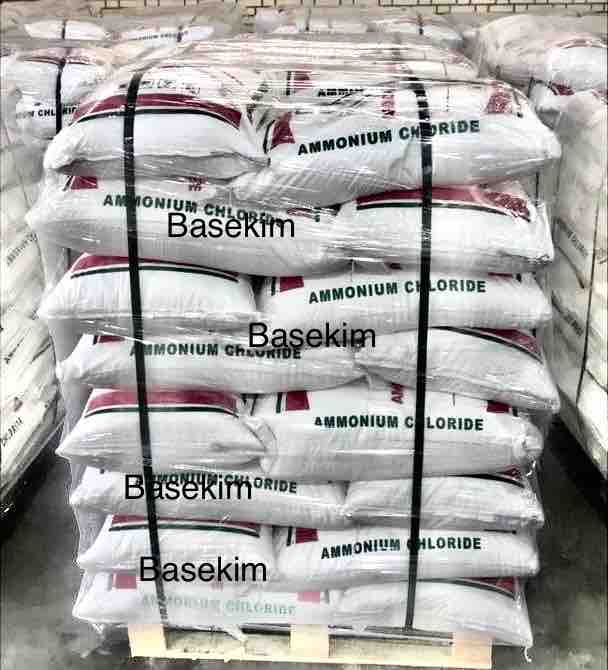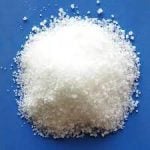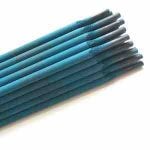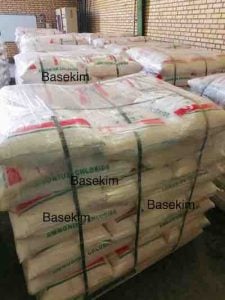
Turkey ammonium chloride NH4CL
- Home
- Turkey ammonium chloride NH4CL

History of using ammonium chloride NH4CL
The earliest recorded use of ammonium chloride dates back to ancient Egypt, where NH4CL was used in the mummification process to preserve bodies.In Greeks and Romans used as a flux in the production of brass and to treat leather.In traditional Chinese medicine, it was used to treat various ailments, including coughs and sore throats.
Ammonium chloride widely using today. It has various applications, including as a nitrogen source in fertilizers, a flux in metalwork, a laboratory reagent, oil well drilling mud an ingredient in certain medicines, and a food additive (under appropriate regulations).
NH4CL Turkey Ammonium chloride in oil drilling
Ammonium chloride (NH4Cl) is occasionally use in oil drilling operations for various purposes. Here are a few ways it can be utilized:
Table of Contents
ToggleClay Stabilization
The ammonium chloride is sometimes employ to stabilize clay formations during drilling operations. Clay swelling can cause difficulties in drilling, leading to wellbore instability and reduce productivity. By treating the drilling fluid with ammonium chloride, the clay particles can be inhibite from swelling, thereby maintaining the stability of the wellbore.
Fluid Loss Control
NH4CL can function as a fluid loss control agent in drilling fluids. It helps to reduce fluid loss into the formation being drill by forming a thin filter cake on the wellbore walls. This cake acts as a barrier and minimizes the invasion of drilling fluid into the surrounding rock formation.
PH Control
It can be employ to adjust and control the pH of drilling fluids. Maintaining the desire pH range is crucial to prevent the degradation of drilling mud additives and ensure their optimal performance. It is acidic and can be used to lower the pH of the drilling fluid if it becomes too alkaline.
Density Control
Oil drilling often requires the use of drilling fluids with specific density characteristics. NH4CL can be added to the drilling fluid to increase its density. This adjustment in density helps to control the wellbore pressure and prevent unwanted fluid influx or loss.
Usage in water base drilling
Commonly use in drilling fluids include water-base muds, oil-base muds, and synthetic-base muds. These fluids are formulated with specific additives and chemicals to enhance their performance and meet the specific needs of drilling operations, such as controlling pressure, preventing formation damage, and facilitating the extraction of oil or gas.
Solubility in water
The Turkey ammonium-chloride is white crystalline solid. Can be soluble in water (37%).
Has formed a by-product inside the production process related to sodium carbonate. It has diuretic effects. NH4CL will be something white crystalline solid with its purest form. Also, shows expectorant effects. This material has a mildly acidic nature due to the chloride ions present inside it.
NH4CL for medicine
5% solution of NH4CL when mix with water gives us pH of 4.6 to 6. Ammonium-chloride compound can be very soluble inside polar solvents, especially water. NH4CL can also form as a result of the reaction between ammonium sulfate & sodium chloride. Useful about veterinary medicine.
This compound helps prevent urinary stones for animals like goats, sheep & cattle.
Food grade ammonium chloride
Food grade ammonium chloride serves multiple purposes in the food industry, including as a flavoring agent, a yeast nutrient in bread making, and a dough conditioner. It can also act as an acidity regulator and an anti-caking agent in certain food products.
In batteries
In dry cell batteries, where it can act as an electrolyte or provide the necessary acidity for the electrochemical reactions. However, these types of batteries are less common in today’s consumer electronics market, where lithium-ion batteries dominate.
In mining flotation process
Flotation grade ammonium chloride is commonly use in the mining and mineral processing industry for froth flotation processes. Froth flotation is a method use to separate valuable minerals from ore base on their hydrophobicity (ability to repel water) and is widely employ in the extraction of various metals, such as copper, lead, zinc, and nickel.
Laboratory grade NH4CL
Some common uses of laboratory-grade ammonium chloride include:
- Analytical chemistry: It is using as a reagent in various chemical reactions and analyses, such as pH buffering and acid-base titrations.
- Organic synthesis: Using as a nitrogen source in organic reactions, such as the formation of amides or in the Hofmann rearrangement.
- Electrochemistry: NH4CL is use in electrochemical cells and batteries as an electrolyte, facilitating the flow of ions.
- Protein purification: It is sometimes using to precipitate proteins during the purification process.
Metalwork grade
Metalwork grade ammonium chloride, also known as soldering flux, is a specialize for use in metalworking and soldering processes. It is commonly use as a flux in soldering and brazing applications to facilitate the flow of solder and improve the wetting and adhesion of the solder to the metal surfaces.
Fertilizer
The NH4CL mainly usage is nitrogen source for fertilizers, mostly usage for rice and wheat crops for Asians. Also, usage an ingredient inside fireworks, safety matches and contact explosives.
Detergent
Ammonium-chloride has been found in household products such as shampoos, hair dyes and bleaches, body washes, facial cleansers, hand washes, dish washing detergents, as well as oils and salts. This is an important usage of electrolytes in dry cell batteries.
Glue grade
In the case of glue production, ammonium chloride is often add as a curing agent or a resin modifier. It helps improve the adhesive properties of the glue and contributes to its overall performance.
Textile
Textile grade ammonium chloride is a chemical compound that is commonly use in the textile industry as a dyeing and printing agent, as well as a buffering agent for controlling the pH of dye baths.
Packing details
Packing: plastic woven bag, lined with polythene film bag, net weight 40kg, 50kg; or by 500kg, 1000kg flexible freight bags.These bags are typically made from materials that can withstand the corrosive and prevent leakage. The bags are sealed to keep the ammonium chloride secure and protect it from moisture and contamination.
NH4CL Physical characteristics
It does not have a specific smell. Ammonium chloride melting point is 3380, boiling point for this mineral admixture 5200 degrees Celsius.
Density is higher than water, density 1.5274 g/ml. This material has high solubility. Soluble inside polar solvents, water, methanol, glycerol, ethanol, also inside acetone. But it is insoluble inside non-polar or organic solvents. For example, insoluble in ethyl acetate.
NH4CL chemical properties
It eventually decomposes under intense heat. This compound decomposes into ammonia and hydrogen chloride gas. Ammonium chloride is an inorganic compound that possesses several chemical properties. Here are some NH4Cl key chemical properties:
Acidic Nature
ammonium chloride is an acidic salt, which means it can release hydrogen ions (H+) when dissolved inside water. It dissociates into ammonium ions (NH4+) and chloride ions (Cl-) in an aqueous solution. Ammonium ion can donate a proton (H+) to water, resulting in formation of hydronium ions (H3O+), which gives solution its acidic character.
Solubility
It readily dissolves in water to form a clear, colorless solution. Solubility decreases with decreasing temperature. At lower temperatures, can precipitate out of solution.
Volatility
this is a white crystalline solid that can sublime, meaning it can transition directly from a solid to a gas without passing through a liquid phase when heated. Upon heating, decomposes into ammonia gas (NH3) and hydrogen chloride gas (HCL).
Thermal Decomposition
undergoes thermal decomposition when heated to high temperatures. This decomposition reaction produces ammonia gas and hydrogen chloride gas, as mentioned earlier. Reaction can be represented as: NH4Cl(s) → NH3(g) + HCL(g).
Conductivity
An aqueous solution can conduct electricity due to the ion’s presence . When dissolved in water, NH4Cl dissociates into ammonium ions (NH4+) and chloride ions (Cl-), which are capable to carrying an electric charge. Thus, solution can conduct electric current.
PH
presence in water results in formation of an acidic solution due to hydrogen release (H+). The solution’s pH will be less than 7, indicating acidity. Exact pH depends on the concentration of NH4Cl and amount of water.
MSDS
Download MSDS of Ammonium Chloride
Data sheet
Download data sheet and specification of NH4CL (Ammonium Chloride)
Contact Info
Turkey office:No.6 of Fahrettin Pasa Sokak , Galip Erdem steet, Ilkbahar Mah. Turan Gunes Ave. Çankaya Ankara
Phone: 00903125147055
Dubai office: 3509 of the Burligton tower, business bay, dubai-uae
Phone:0097142369830
E-Mail: [email protected]




